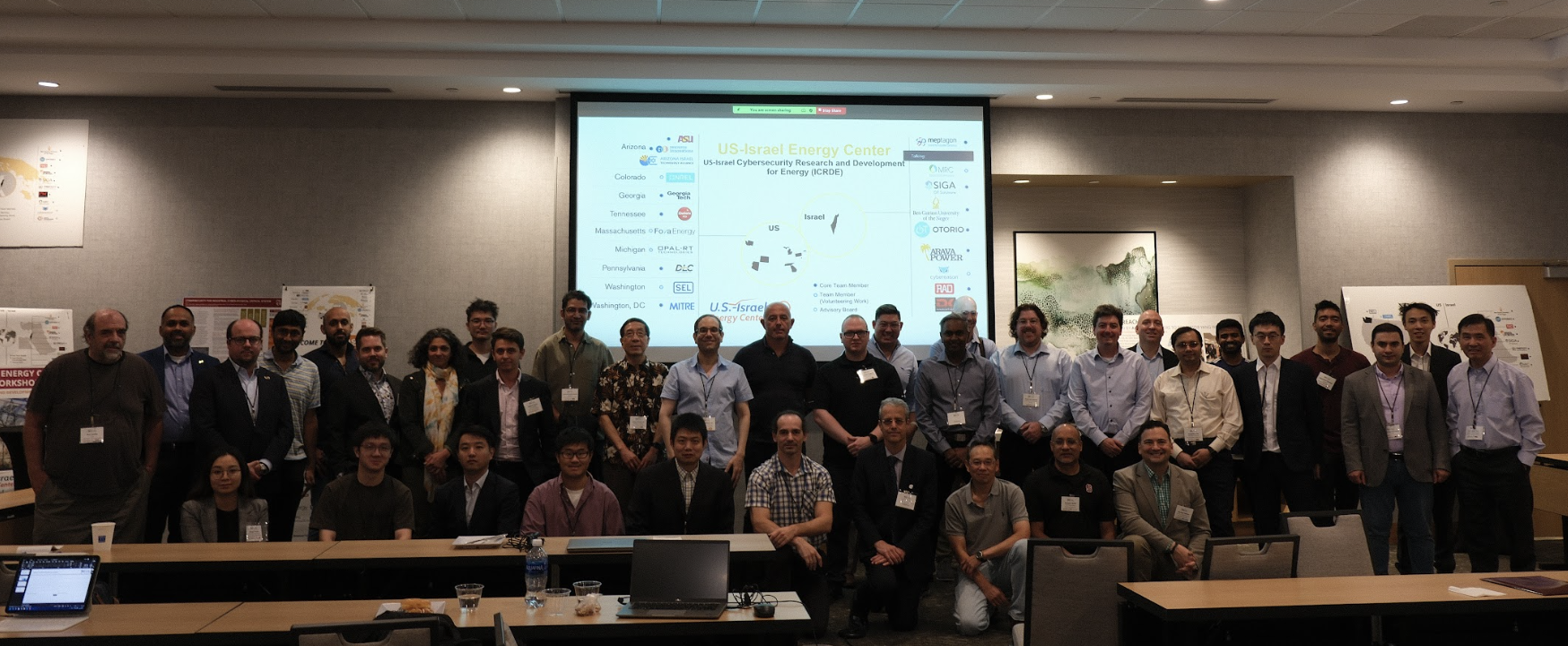To bolster cyberdefense for energy grids and water systems, the U.S. and Israel began a collaboration known as the Israel-U.S. Initiative on Cybersecurity Research and Development for Energy, or ICRDE, which is one of four consortia operating. The collaboration, which began in 2021, includes a variety of academic and industry partners, Arizona State University leads the coalition’s U.S. efforts, while Ben-Gurion University of the Negev leads the Israeli side.
The coalition has pursued research to improve energy grid cybersecurity since 2021 and met at four virtual conference workshops. The fifth workshop, held in Tempe, Arizona, at the Hyatt Place hotel near ASU’s Tempe campus from Oct. 9–11, 2023, was the first to take place in person due to the coronavirus pandemic. The workshops give coalition members a chance to network with one another, discuss the ICRDE’s future plans and share updates on their research progress. The ICRDE’s work has even been noticed beyond the coalition, leading the Tempe workshop to include organizations outside of coalition partners, such as those from the National Renewable Energy Laboratory and Stanford University. Specific talks include invited presentations that focus on tool development, integration, demonstration of the practical values and potential impact of the research outcomes that include cyberattack monitoring and mitigation, and commercialization in collaboration with industry partners.
“The workshop shows a common interest related to my research field,” says Yang Weng, an assistant professor of electrical engineering in the Ira A. Fulton Schools of Engineering at ASU and leader of the ICRDE’s U.S. side. “In the workshop, we bring distinct ideas to the consortium based on our research and products.”
Day 1: Discovering new defenses for energy resources
The conference agenda included presentations on new developments in the consortium’s research topics, such as projects in modeling and monitoring of energy systems and tools for learning and detection of cyberattacks on information technology and operational technology architecture. ASU presenters included Weng, Lalitha Sankar, a professor of electrical engineering in the Fulton Schools, and Joel Mathias, an electrical engineering postdoctoral research scholar.
The day also included discussions of the ICRDE’s future such as the potential to extend the consortium’s activities, funding and possible new research ideas, including one by Ying-Cheng Lai, an ASU Regents Professor of electrical engineering, to use advanced machine learning techniques to detect and defend against cyberattacks on the energy grid.
The workshop’s first day finished with two poster presentation sessions, a mariachi music performance and a review of work on ICRDE projects.
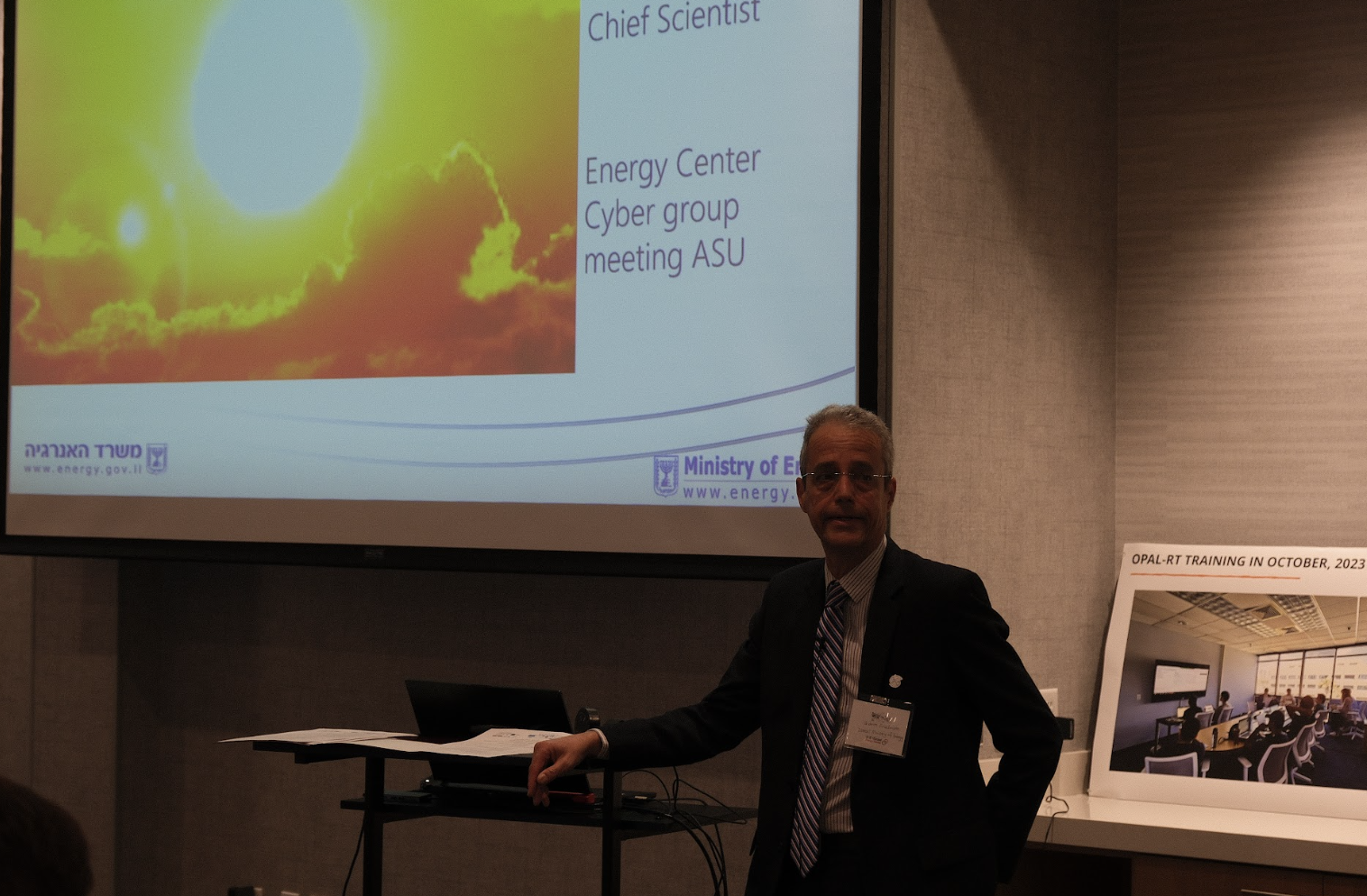 |
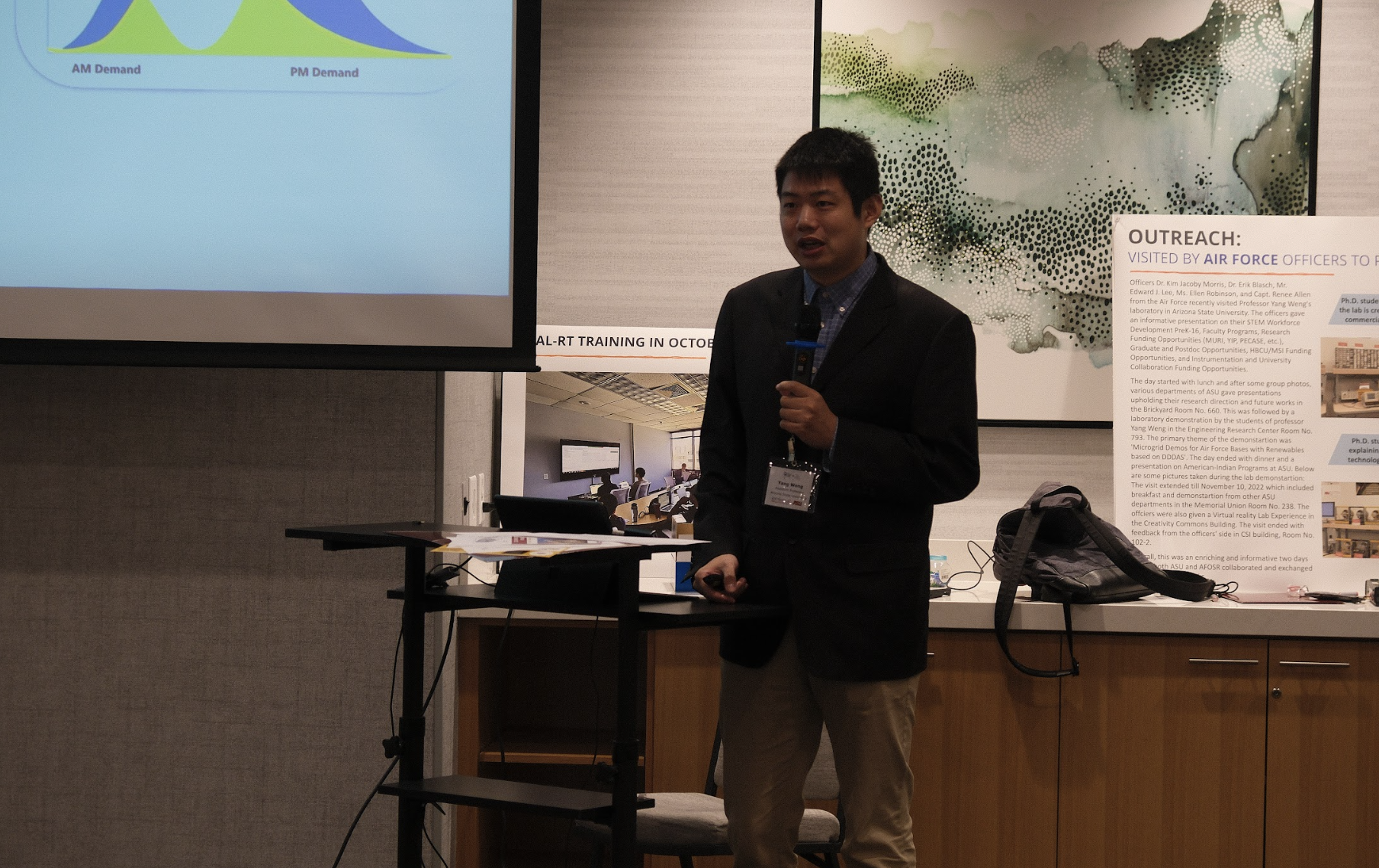 |
Day 2: Contemplating cybersecurity to defend the energy grid
The second day began with a keynote speech from Jared Bierbach, a senior international relations officer for the U.S. Department of Energy. Bierbach praised the ICRDE as an effective example of industry and academic collaboration across consortium members from both countries. “Although it’s been around for just a few years, many people are looking to the model of the energy center to advance technology and bring together leaders and academia, research institutions and industry to solve complex problems,” he said.
The day’s agenda included meetings with cybersecurity experts from industry, a simulation and security assessment of industrial control systems, panel discussions on attack detection and mitigation and security assessment and information sharing, meetings about business opportunities and the ICRDE’s future, demonstrations of cybersecurity tools developed by industry, a research poster presentation session and a tour of Weng’s lab.
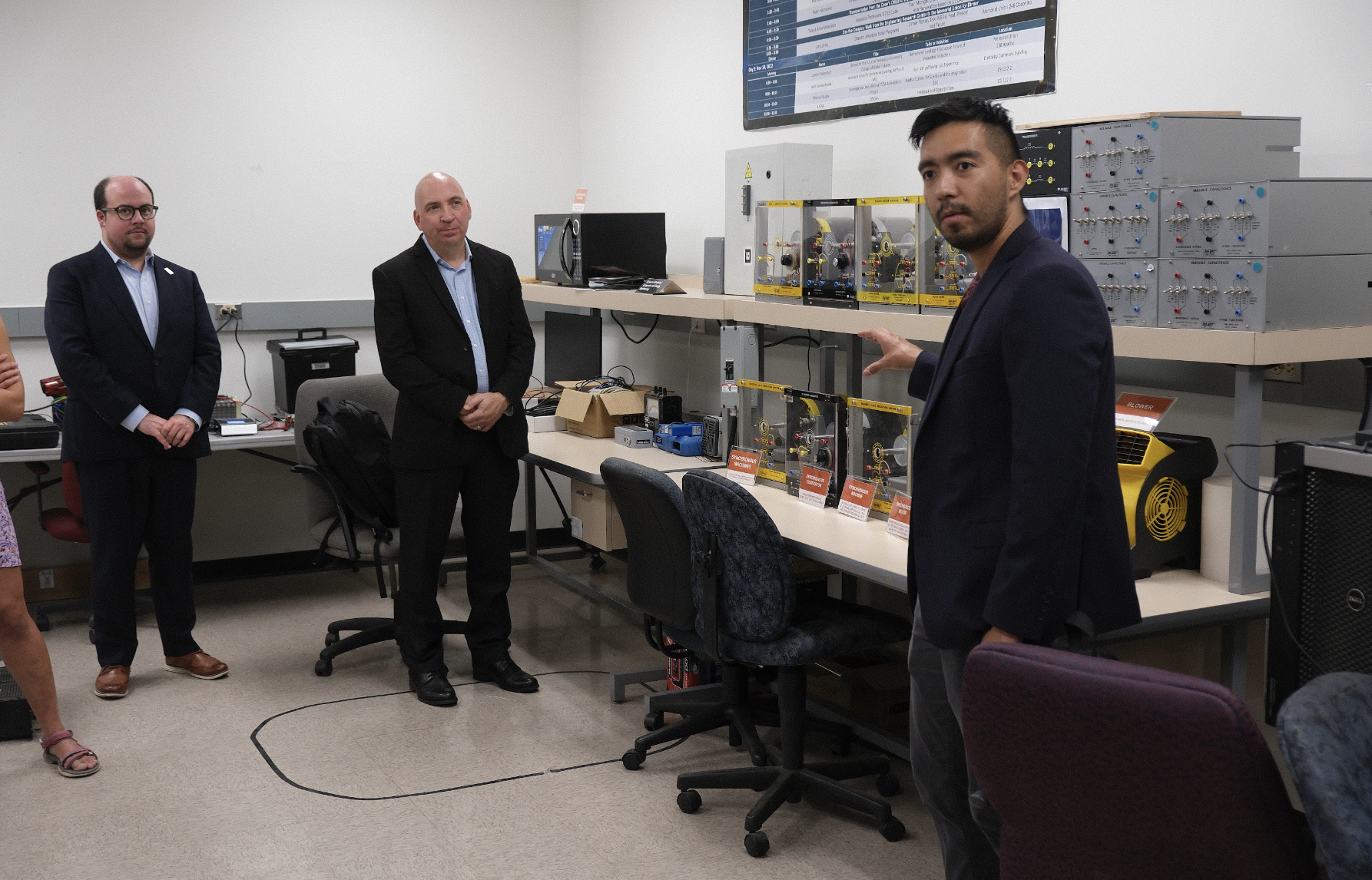 |
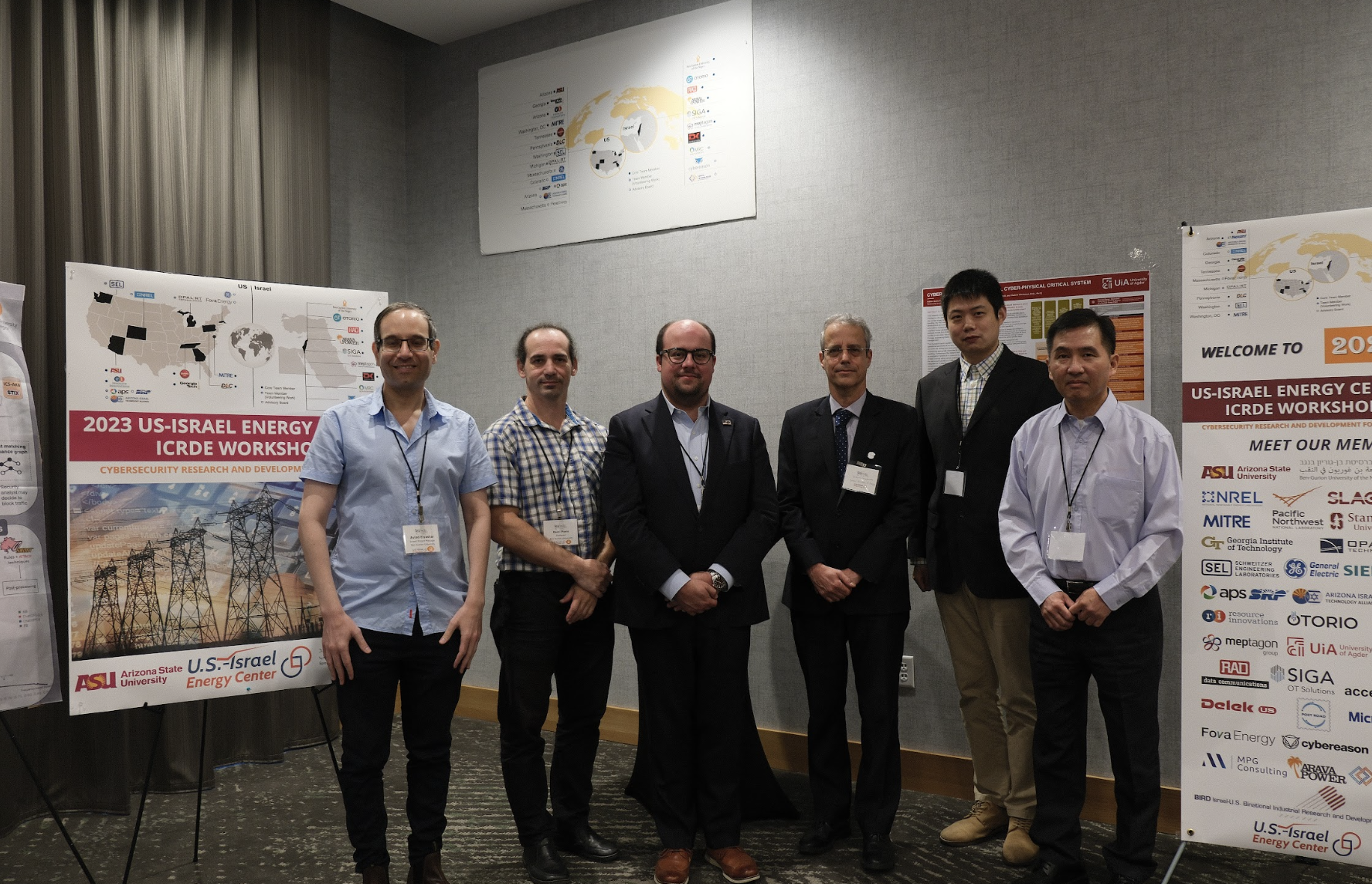 |
Day 3: Closing out a collaborative workshop
The first presentation session of the day was about tools for control and mitigation of threats for achieving resilience. ASU’s Lai was among those presenting, explaining his findings on the use of heterogeneous reinforcement learning, a type of machine learning, for the defense of large power grids and the technology’s potential commercialization.
A final session on cybersecurity designs to defend against future threats included Weng’s research on hardware-in-the-loop technology, which tests algorithms by running them in a virtual environment designed to simulate real-world conditions.
For Weng, the workshop represents meaningful progress toward solving energy grid security issues around the world. “I am glad to bring people together to tackle the cybersecurity problem for energy systems,” he says. “I hope that ASU can continue its leadership in power and energy research and improve energy services for people worldwide.”
